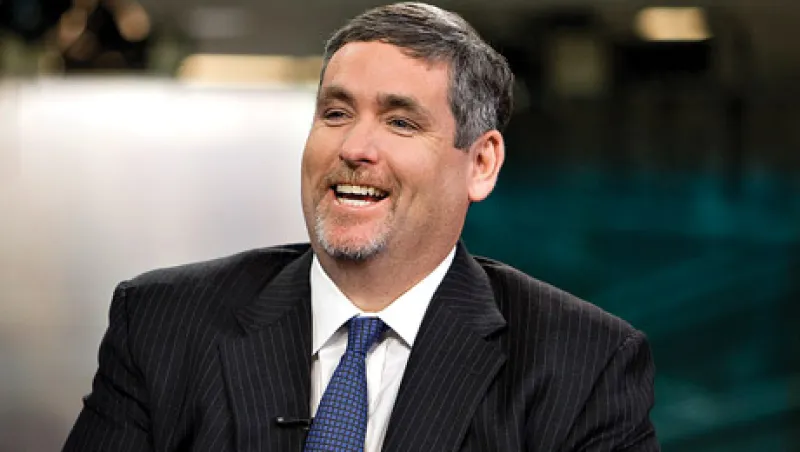
Shawn Matthews, chief executive officer of Cantor Fitzgerald & Co. Inc., smiles during a television interview in New York, U.S., on Thursday, Jan. 28, 2010. Cantor Fitzgerald LP, one of the 18 primary dealers authorized to trade U.S. government securities with the Federal Reserve Bank of New York, said it was entering the U.S. municipal bond business as municipalities may issue record amounts of debt. Photographer: Daniel Acker/Bloomberg *** Local Caption *** Shawn Matthews
Daniel Acker/Bloomberg

